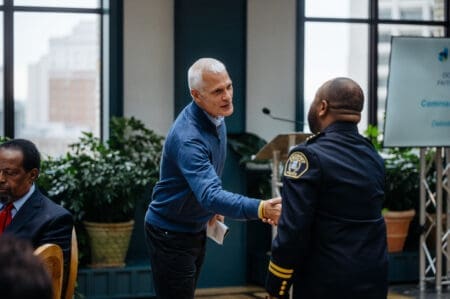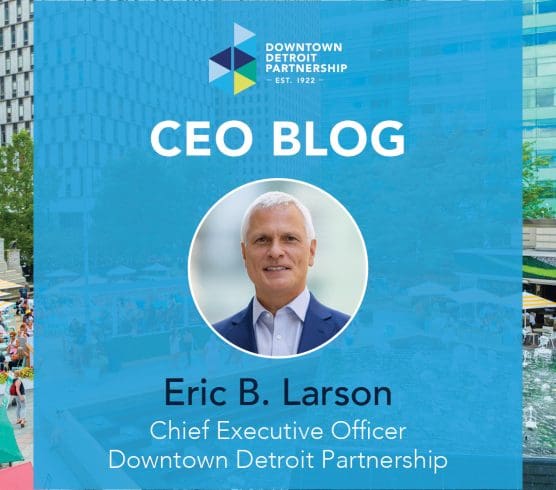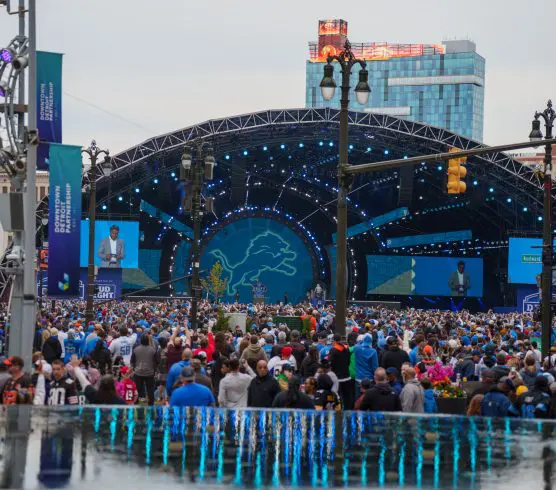“We all have the right to live our lives free from stigma and discrimination in places like schools and workplaces.”
This is one of several key messages the World Health Organization shared regarding World Mental Health Day.
To that, I’d add “and downtowns.”
In a world that continually strives for progress and equality, the right to live a life free from stigma and discrimination is a fundamental cornerstone of human rights. It’s a right that should not only extend to schools and workplaces but also to the very heart of our communities: downtowns. This perspective was underscored by the World Health Organization during World Mental Health Day, celebrated annually on October 10, which seeks to enhance awareness, knowledge, and actions that foster and safeguard mental well-being. This year’s theme, “Mental health is a universal human right,” emphasizes that this right is not confined to a specific setting but should be universally accessible and respected.
One remarkable example of this principle in action can be found in the initiatives of the Downtown Detroit Partnership. On World Mental Health Day, we co-hosted the third annual Faith and Blue Breakfast with the Detroit Police Department, an event designed to bring together faith-based organizations, the community, businesses, and law enforcement to unite in knowledge sharing and open communication. The event is particularly dedicated to addressing the intertwined issues of homelessness and mental health, which continue to be significant challenges in urban settings.
In Detroit, the Detroit Police Department plays a pivotal role in tackling mental health issues on a daily basis. Police Chief James White recognizes that this has become one of law enforcement’s most significant challenges, with the department’s mental health unit responding to an astounding 39 daily calls and nearly 9,000 calls annually. Out of necessity, the Mental Health Co-Response Partnership was formed, enabling officers to work alongside behavioral and mental health specialists when responding to these calls. These officers are not only equipped with training but also with a deep well of patience and strategies to de-escalate potentially volatile situations.
While responding to mental health calls may not be a choice for officers, their impact on the community is immeasurable. Their presence and expertise can make a critical difference in guiding individuals toward much-needed care and support rather than criminalization.
Furthermore, the Downtown Detroit Partnership initiated a pilot program last year that employs a licensed social worker to interact with the homeless population and provide resources, with a focus on addressing mental health issues. In addition, the Downtown Detroit Ambassadors undergo training in mental health protocols. This multi-pronged approach demonstrates a commitment to improving mental health support and awareness within the downtown community.
At the Faith and Blue Breakfast, Father Tim McCabe, executive director of the Pope Francis Center, expressed immense gratitude for the efforts of law enforcement and encouraged a transformational approach to homelessness. The Pope Francis Center is actively building a facility in Detroit that aims to become a national model for addressing chronic homelessness, with a strong emphasis on addressing systemic and institutional racism. His experiences visiting 22 programs in 10 cities have led him to firmly believe that ending chronic homelessness is possible with the right resources and unwavering determination.
Individuals facing mental health issues, much like those experiencing homelessness, encounter similar stigmas. The training of officers and ambassadors, coupled with the compassion of faith-based organizations, is a vital step in reducing this stigma and offering critical assistance to those in need.
In the spirit of Dr. Martin Luther King, Jr.’s wisdom, it becomes clear that communication and understanding are the keys to breaking down barriers. Fear often emerges from ignorance and misunderstanding, which can be mitigated through education, engagement, and open dialogue. By uniting diverse communities to share knowledge, downtowns can become inclusive spaces where individuals no longer fear each other due to a lack of understanding. This, in turn, will be the driving force behind a brighter and more equitable future, one where everyone receives the help they need to thrive.


